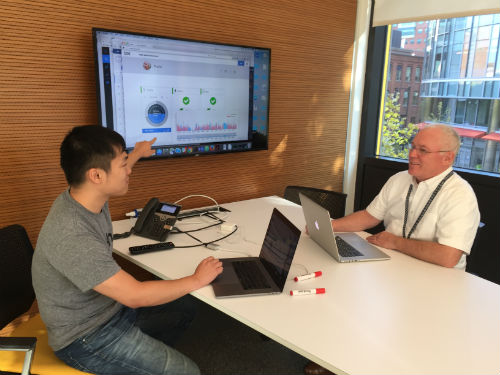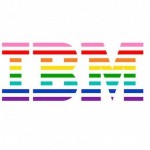Perspectives
Q&A: Accessibility Researcher, Peter Fay, On Leveraging Cognitive
September 29, 2017 | Written by: IBM THINK Blog
Categorized: Perspectives
Share this post:
Peter Fay is an Accessibility Researcher at IBM and is working on a number of cognitive projects, including one dedicated to helping people “age in place.” The IBM THINK Blog caught up with Peter recently to get his views on accessibility research, innovation and the next generation of researchers. The following is an excerpt and is part of our Perspectives series of blogs that feature stories by and about IBMers who take the “long view.” Whether it’s discovering the next breakthrough, starting the next chapter in their career, or examining skills that drive the next wave of innovation, Perspectives captures the story.
THINK Blog: Tell us about the innovative work you do at IBM.
FAY: I work in the IBM Accessibility Research lab in Cambridge, Mass. Right now, I am exploring how artificial intelligence and the Internet of Things can help the world’s growing aging population to safely live at home as long as possible – what’s known as “aging in place.” We’re discovering how these technologies can be used to monitor daily activities and the general health of seniors to help prolong independence and improve their quality of life. We also want to help family members and caregivers identify potential risks and better prescribe the right eldercare for their loved ones.

Peter Fay (r), chats with Gaoyuan Zhang at IBM’s Cambridge Accessibility Lab.
I also work with universities and other partners to find new ways for IT to be more accessible and inclusive to people with disabilities. For example, IBM is working with the Job Accommodation Network and West Virginia University’s Center for Disability Inclusion to develop a mobile app that enables organizations to better accommodate employees with disabilities so they can achieve their full potential.
IBM is also collaborating with UC San Diego to create the Artificial Intelligence for Healthy Living Center. This multi-year research study will focus on how AI can enable seniors to live meaningful, productive lives.
It’s an interesting job, and has broadened my perspective on how technology can really improve the lives of people with disabilities. Before I moved into this job seven years ago, I never fully appreciated that.
THINK Blog: What was your first job?
FAY: I graduated from Boston College with a liberal arts degree. I had various part-time jobs at the school that gave me a taste of working in a university environment, but wasn’t sure what to do with my English major. I found a paid internship at the University of San Francisco, which led to a summer session in Shanghai learning the language and culture, which had a profound impact on me. Upon my return to San Francisco, I connected with a neighbor who once worked for IBM, and I thought IBM might be a cool place to work someday. After working at several other tech companies, I joined IBM.
THINK Blog: How did that first job influence what you do today?
FAY: I have an affinity for beginning one’s career as an intern. We’ve been bringing in quite a lot of interns throughout the year. I enjoy the opportunity to work with students again, which I find energizing, along with mentoring them as they enter the workforce. I discuss not just the technical aspects of the job, but can help them appreciate the culture and the fact that it’s possible to have multiple careers at the same company, as I have. I also tell them that they shouldn’t just want a job, but to be inspired to change the world.
Making the workplace safe for employees living with HIV
The recent promising news about Covid-19 vaccines is in sharp contrast to the absence of a vaccine for HIV, despite decades of research. Unlike Covid-19 with a single viral isolate that shows minimal diversity, HIV circulates in a wide range of strains that so far have proven impervious to a single vaccine. Fortunately, more people […]
Call for Code for Racial Justice Needs You: Join the Movement
IBM has never avoided taking on big challenges. At IBM, we are privileged to drive impact at scale. We take on challenges that transform our clients, impact people’s lives and innovate for future generations as we strive to effect systematic societal change. Over the course of our 109-year history, the evidence has become clear that […]
A New Wave: Transforming Our Understanding of Ocean Health
Humans have been plying the seas throughout history. But it wasn’t until the late 19th century that we began to truly study the ocean itself. An expedition in 1872 to 1876, by the Challenger, a converted Royal Navy gunship, traveled nearly 70,000 nautical miles and catalogued over 4,000 previously unknown species, building the foundations for modern […]



